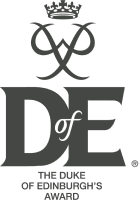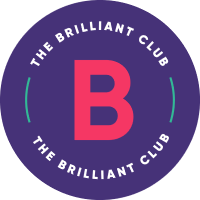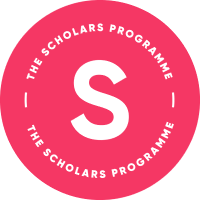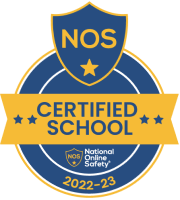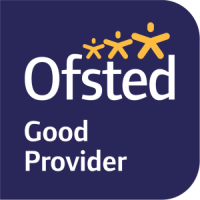This subject is part of the Faculty of Mathematics, Enterprise and Computing
Our Head of Faculty is
Mr J Pridden jpridden@tcat.school
Our subject teachers and email are
Mr R Down rdown@tcat.school
Mr J Pridden jpridden@tcat.school
Our subject intent
Is to equip our pupils with a range of skills and provide opportunities to develop, transferable skills such as research, planning, analyses, review, working with others, along with the ability to understand the impact of digital technology on wider society.
Computer Science will encourage students to:
- Understand and apply the fundamental principles and concepts of Computer Science, including abstraction, decomposition, logic, algorithms, and data representation
- Analyse problems in computational terms through practical experience of solving such problems, including designing, writing and debugging programs
- Think creatively, innovatively, analytically, logically and critically
- Understand the components that make up digital systems, and how they communicate with one another and with other systems
- Apply mathematical skills relevant to Computer Science.
Including high attaining learners, by introducing them to demanding material and techniques; encouraging independence and creativity and providing tasks that engage with the most taxing aspects of the National Curriculum.
Curriculum Subject Offer
Year 10 Computing
Subject intent
To create a greater understanding of how computers are used and to enhance the pupils problem solving skills and develop key problem solving skills useful in a range of disciplines as well as the coding and software development skills that will give them an opportunity to work or for further study in the developing area seen to be key in the modern world.
During Year 10 you will learn:
The importance of computing and how it benefits in the wider society. Throughout each stage programming will take up the vast amount of homework time allotted so that in class can focus on the integral parts of computers. Pupils will be looking at the internals of the computer and how the software and hardware integrate.
Topic Breakdown
|
Half term 1 |
Half term 2 |
|
| Autumn |
|
|
| Spring |
|
|
| Summer |
|
|
You will be assessed in the form of 2 exams each equating 50% for this course.
Internal mini assessments are completed to maintain understanding of progression and standards of the pupils understanding.
Computing SOW
Year 11 Computing
During Year 11 you will learn:
you will build on the knowledge gained from year 10 and look in depth at the application of these skills. Focus will be on the ethical and cultural impacts along with the programming search capabitlites
Topic Breakdown
|
Half term 1 |
Half term 2 |
|
| Autumn |
|
|
| Spring |
|
|
| Summer |
|
You will be assessed in the form of 2 exams each equating 50% for this course.
Internal mini assessments are completed to maintain understanding of progression and standards of the pupils understanding.
Computing SOW
Within each subject we have our own specific personalised marking and feeback policy.
|
Faculty: Maths and ICT |
|||
|
|
KS3 ~ Maths |
KS4 ~ Maths |
ICT |
|
Verbal dialogue |
Teachers circulate with purpose, checking students’ work, marking if appropriate and collecting information on whole-class strengths, errors, misconceptions, knowledge gaps etc. The teacher adjusts their lesson accordingly. |
Teachers circulate with purpose, checking students’ work, marking if appropriate and collecting information on whole-class strengths, errors, misconceptions, knowledge gaps etc. The teacher adjusts their lesson accordingly. |
Teachers circulate with purpose, checking students’ work, marking if appropriate and collecting information on whole-class strengths, errors, misconceptions, knowledge gaps etc. The teacher adjusts their lesson accordingly. |
|
Self/peer assessment |
During lessons, students mark their own work, by either the class teacher reading out the answer or using the answers in the back of the text books. Students provide written feedback through strengths/targets and annotations, as appropriate (not needed every lesson). Peer and self-assessment should be completed in blue pen. |
During lessons, students mark their own work, by either the class teacher reading out the answer or using the answers in the back of the text books. Students provide written feedback through strengths/targets and annotations, as appropriate (not needed every lesson). Peer and self-assessment should be completed in blue pen. |
During lessons pupils will review their own and peers work to make relevant points on how to improve their work. Students provide written feedback through strengths/targets and annotations, as appropriate (not needed every lesson). Peer and self-assessment should be completed in blue pen. |
|
Whole Class Feedback |
When students have completed a unit of work, books will be collected in and the class teacher will look through the work covered during that topic and make notes on the students’ strengths and areas for development. Teachers are not expected to make any comments in the student’s books. Teachers will then use this information to provide whole class feedback on what students are doing well and how students can improve their work further. This will be delivered to the whole class at the start of the next lesson. Evidence of whole class feedback will be in students exercise book, written in blue pen. |
When students have completed a unit of work, books will be collected in and the class teacher will look through the work covered during that topic and make notes on the students’ strengths and areas for development. Teachers are not expected to make any comments in the student’s books. Teachers will then use this information to provide whole class feedback on what students are doing well and how students can improve their work further. This will be delivered to the whole class at the start of the next lesson. Evidence of whole class feedback will be in students exercise book, written in blue pen. |
When students have completed a unit of work, books will be collected in and the class teacher will look through the work covered during that topic and may make notes on the students’ strengths and areas for development. Teachers are not expected to make any comments in the student’s books. Teachers will then use this information to provide whole class feedback on what students are doing well and how students can improve their work further. This will be delivered to the whole class at the start of the next lesson. Evidence of whole class feedback will be in students exercise book, written in blue pen. |
|
Written comments |
Teachers in this department are expected to provide written comments (2 strengths and 1 target) twice each half term, for each class they teach. These can take the format of either differentiated DIRT tasks or Knowledge checks. DIRT (Dedicated improvement and reflection time) Students complete a self-assessment task within class and identify an area of weakness they feel they need to work on. The class teacher will provide a selection of short tasks, one for each of the learning objectives covered. Knowledge checks A couple weeks after the completion of a unit of work, students are given a set of questions covering all the learning objectives covered. These are completed individually, where students are allowed to use their blue books to help recall information needed to complete the question. These tasks are to be marked by the class teacher identifying strengths and areas for improvement, which will be shared the following lesson. |
Teachers in this department are expected to provide written comments (2 strengths and 1 target) twice each half term, for each class they teach. These can take the format of either differentiated DIRT tasks or Knowledge checks. DIRT (Dedicated improvement and reflection time) Students complete a self-assessment task within class and identify an area of weakness they feel they need to work on. The class teacher will provide a selection of short tasks, one for each of the learning objectives covered. Knowledge checks A couple weeks after the completion of a unit of work, students are given a set of questions covering all the learning objectives covered. These are completed individually, where students are allowed to use their blue books to help recall information needed to complete the question. These tasks are to be marked by the class teacher identifying strengths and areas for improvement, which will be shared the following lesson. |
During the theory units Teachers will provide a written comment 2 strengths and 1 target) and from this differentiated task will be given. These extra tasks may take any format but are likely to be DIRT sheets (linked to that topic which is being worked on) and knowledge checks (recap at prior learning) These tasks are to be marked by the class teacher identifying strengths and areas for improvement, which will be shared the following lesson. During Coursework units no written feedback can be given as this is controlled. |
|
Frequency of feedback |
Verbal dialogue will take place as and when required throughout every lesson Self/peer-assessment ~ Students are expected to mark their own work and make any corrections in blue pen as required throughout the lesson. ~ After completion of formal assessments, students fill in a ‘student self-assessment’ where they RAG rate their performance in each of the learning objectives covered in the assessment. Whole class feedback At least once in every unit of work, as appropriate for the pace of the class. Written comments This will happen around twice per half term, as appropriate for the pace of the class. |
Verbal dialogue will take place as and when required throughout every lesson Self/peer-assessment ~ Students are expected to mark their own work and make any corrections in blue pen as required throughout the lesson. ~ After completion of formal assessments, students fill in a ‘student self-assessment’ where they RAG rate their performance in each of the learning objectives covered in the assessment. Whole class feedback At least once in every unit of work, as appropriate for the pace of the class. Written comments This will happen around twice per half term, as appropriate for the pace of the class. |
Verbal dialogue will take place as and when required throughout every lesson Self/peer-assessment ~ Students are expected to mark their own work and make any corrections in blue pen as required throughout the lesson. ~ After completion of formal assessments, students fill in a ‘student self-assessment’ Whole class feedback At least once in every unit of work, as appropriate for the pace of the class. Written comments This will happen as appropriate for the pace of the class most likely twice a term. |
|
Response to feedback |
Students should mark all their work in blue pen. After self/peer-assessments students should be given time to complete corrections or annotate their work in blue pen. Whole class feedback can take a variety of formats, class teacher decides what is appropriate for individual classes. This could be a matching exercise, differentiated questions, fill in the blanks or answer key questions relating to that particular topic. Written comments may consist teacher using a marking code and then students copying the strengths and targets from the board. |
Students should mark all their work in blue pen. After self/peer-assessments students should be given time to complete corrections or annotate their work in blue pen. Whole class feedback can take a variety of formats, class teacher decides what is appropriate for individual classes. This could be a matching exercise, differentiated questions, fill in the blanks or answer key questions relating to that particular topic. Written comments may consist teacher using a marking code and then students copying the strengths and targets from the board. |
Students should mark all their work in blue pen. After self/peer-assessments students should be given time to complete corrections or annotate their work in blue pen. Whole class feedback can take a variety of formats, class teacher decides what is appropriate for individual classes. This could be a matching exercise, differentiated questions, fill in the blanks or answer key questions relating to that particular topic. Written comments may consist teacher using a marking code and then students copying the strengths and targets from the board. |
|
Summative assessment |
1 x formal assessment each half term. Main focus of each assessment is that half terms learning objectives. Also included are questions from prior learning from this key stage |
1 x formal assessment each half term. Main focus of each assessment is that half terms learning objectives. Also included are questions from prior learning from this key stage |
1 x formal assessment each half term. Main focus of each assessment is that half terms learning objectives. Also included are questions from prior learning from this key stage As coursework is moderated they will be informed of the mark and can make relevant changes if needed. |
